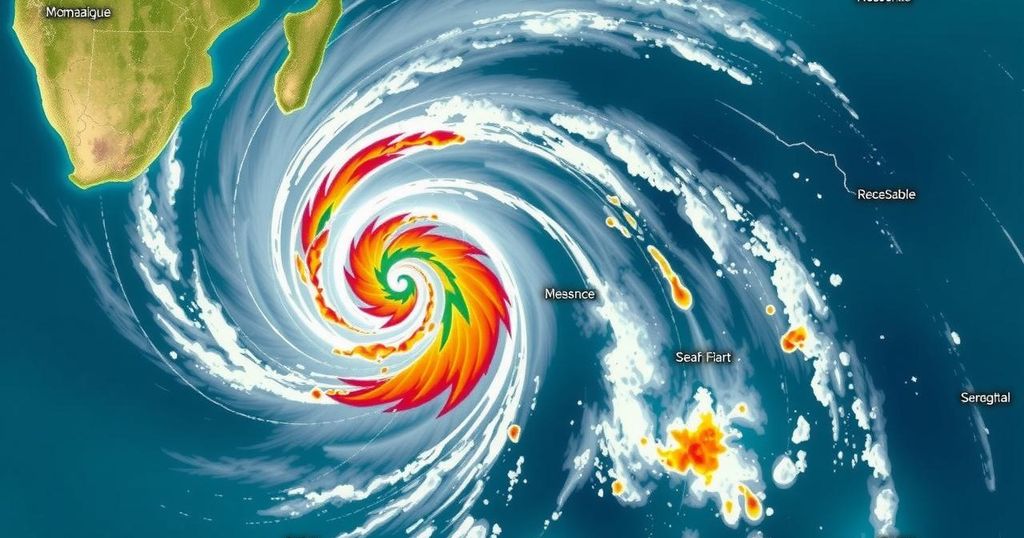Tropical Cyclone Chido: Health and Humanitarian Impacts in Northern Mozambique
Tropical Cyclone Chido impacted Mozambique on December 15, resulting in severe damage to homes, schools, and healthcare facilities, particularly in Cabo Delgado Province. With significant casualties and injuries reported, the humanitarian response is urgent as communities face a challenging recovery due to ongoing health risks and infrastructure damage.
Tropical Cyclone Chido made landfall in the Mecufi district of Cabo Delgado Province, Mozambique, on December 15, 2024, bringing devastating impacts. The cyclone produced heavy rains of up to 250mm within 24 hours and winds reaching 180km/h, resulting in significant destruction across several provinces. As the cyclone moved towards Malawi and is expected to weaken in Zimbabwe, the effects on Cabo Delgado, Nampula, and Niassa are particularly severe, leading to widespread damage and loss of life.
In Cabo Delgado Province, the districts most heavily affected include Mecufi, Chiure, and Pemba, with approximately 23,598 homes completely destroyed. Furthermore, 149 schools and 37 health facilities have suffered damage. The infrastructure in Mecufi district is nearly entirely compromised, leaving 400 families homeless and claiming at least 16 lives with dozens more injured. Individuals requiring medical attention are being referred to Pemba, although healthcare conditions remain dire as medical professionals find shelter in inadequate facilities.
In Chiure district, approximately 50% of homes have been roofless due to the storm, with urgent water shortages affecting 3,000 families in Megaruma. Currently, Chiúre Rural Hospital has limited operational capacity at only 30%, while several accommodation centers are running without proper registration for displaced persons. Injuries and deaths continue to arise as a result of the cyclone’s impact.
In Metuge district, access remains severely restricted, as 4×4 vehicles are needed amidst widespread destruction. In Pemba, efforts to establish operational accommodation centers have largely been unsuccessful, as many displaced individuals come from already vulnerable neighborhoods. With the potential for urban flooding in critical areas of Pemba City, the situation remains precarious.
Despite the devastating effects of Tropical Cyclone Chido, response efforts are ongoing to address the immediate health and humanitarian needs. Access to medical supplies and support systems remains critically needed as communities begin to recover from this disaster.
Tropical Cyclone Chido struck Mozambique on December 15, 2024, causing severe damage to infrastructure and loss of life. The cyclone’s progress through regions like Cabo Delgado and Nampula exacerbated existing vulnerabilities, impacting homes, schools, and healthcare facilities. The document covers the immediate health cluster response and the situation across various provinces following the cyclone’s landfall, highlighting the urgent needs for medical care, water supply, and accommodation for displaced families.
In conclusion, Tropical Cyclone Chido has caused substantial devastation in Northern Mozambique, particularly in Cabo Delgado Province. With significant infrastructure damage and an increasing number of individuals in need of humanitarian assistance, efforts must be intensified to provide medical care, water supply, and shelter for those affected. Timely intervention and support for the impacted communities will be essential in their recovery efforts.
Original Source: reliefweb.int




Post Comment